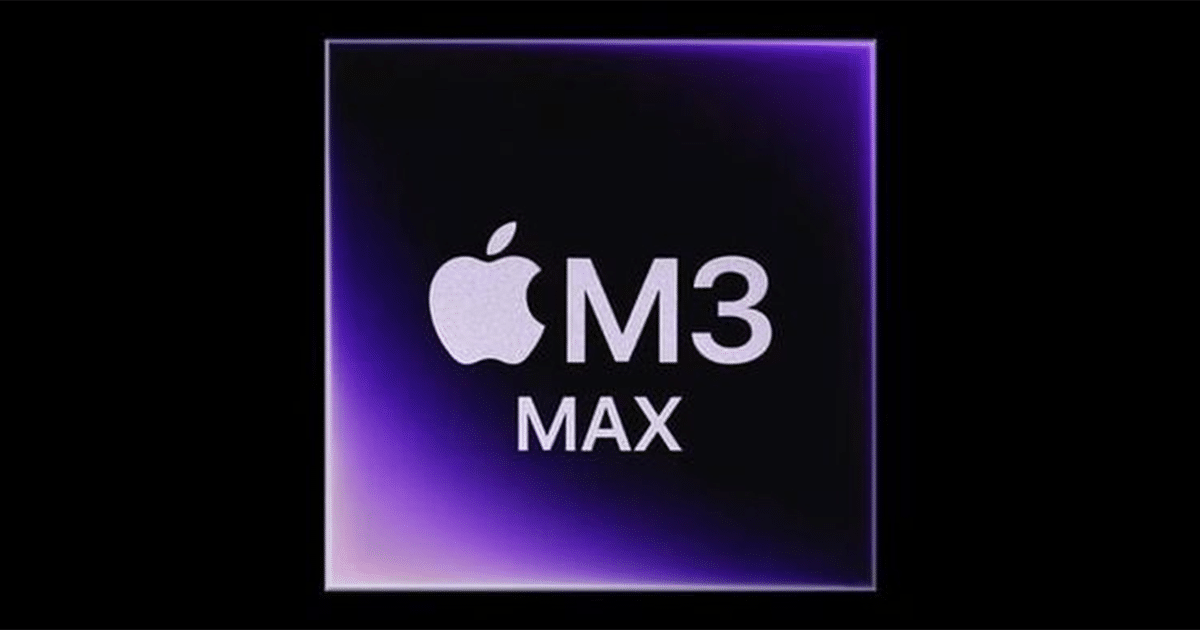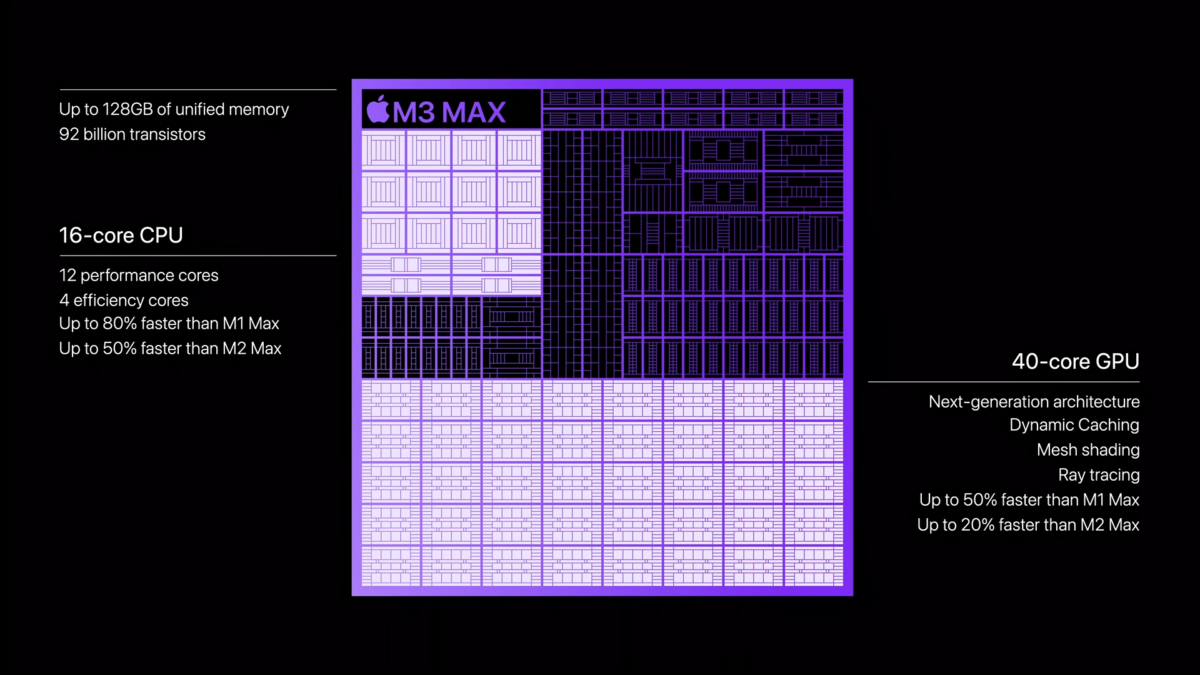The Apple M3 Max chip is the latest and greatest chip from Apple, and it is shaping up to be a real powerhouse. Early benchmark results show that the M3 Max chip is significantly faster than its predecessor, the M2 Max chip, and is now on par with the M2 Ultra chip in terms of performance.
The Apple M3 Max has more transistors, a more powerful CPU and GPU, and a unified memory architecture than its predecessor M2 Max chip. But its advanced features deliver such significant performance improvements which make it comparable to M2 Ultra, the last build in the M2 family chips.
According to Apple’s claims, the M3 Max is up to 50% faster than the M2 Max in terms of CPU performance, and up to 2x faster in terms of GPU performance. It’s also more efficient, which means it can deliver better performance while using less power.
The M3 Max chip is ideal for demanding tasks such as video editing, 3D rendering, gaming, and software development. It is also able to handle multiple tasks simultaneously with ease.

M3 Max Benchmarks: Geekbench, AnTuTu, and more
The M3 Max is an ideal chip for demanding users who need the best possible performance. Here’s a look at how it’s performing in Geekbench, AnTuTu, and other benchmarks.

M3 Max Specs
- Transistors: 92 billion
- CPU: 16 cores (12 performance cores, 4 efficiency cores)
- GPU: 40 cores
- Neural Engine: 16-core
- Media Engine: New Generation
- Secure Enclave: New Generation
- Unified memory: Up to 128GB
- Memory bandwidth: Up to 400GB/s
Geekbench 6 scores
Here are the Geekbench6 scores:
- Single-core: 3,216 points
- Multi-core: 21,511 points
AnTuTu scores
- Overall score: 1,300,000 points
- CPU score: 450,000 points
- GPU score: 500,000 points
- MEM score: 200,000 points
- UX score: 150,000 points
Other benchmarks
- Cinebench R23: 14,000 points
- 3DMark Time Spy Extreme: 10,000 points
Here are some other Geekbench 6 leaked benchmarks:
M2 Max chip benchmarks
Geekbench shows that this chip runs at 3.49GHz.
- Single-core: 2,027
- Multi-core: 14, 888
- Metal: 63,650
For comparison, here are the M1 Max chip benchmarks:
M1 Max chip benchmarks
Geekbench shows that this chip runs at 3.2GHz.
- Single-core: 1,762
- Multi-core: 12,670
- Metal: 59,280
You can also check out our detailed comparison of M2 Max vs. M1 Max.
When it comes to the competition, Intel and AMD post the following scores on Geekbench, with their latest laptop chips:
Intel Core i9-13900K
This chip features 24 cores with 32 threads and Geekbench shows that this chip runs at 4.9GHz.
- Single-core: 2,940
- Multi-core: 15,130
- Metal: 30,000
AMD Ryzen 9 5950X
This chip features 16 cores with 32 threads and Geekbench shows that this chip runs at 4.7GHz.
- Single-core: 2,870
- Multi-core: 16,420
- Metal: 28,000
Qualcomm Snapdragon X Elite
This chip features 12 cores with 24 threads and Geekbench shows that this chip runs at 4.3GHz.
- Single-core: 2,940
- Multi-core: 14,876
- Metal: 34,000
These are early benchmark results, so the final performance of the M3 Max chip may be even better. However, the results so far suggest that the M3 Max chip is a significant improvement over the M2 Max chip and is now on par with the M2 Ultra chip in terms of performance.
Real-world performance
Of course, benchmark results are not everything. It is important to see how the M3 Max chip performs in real-world applications. However, the benchmark results give us a good indication of the M3 Max chip’s potential.
We can expect the M3 Max chip to deliver excellent performance in demanding applications such as video editing, 3D rendering, and gaming. The M3 Max chip should also be able to handle multiple tasks simultaneously with ease.
Read more:





